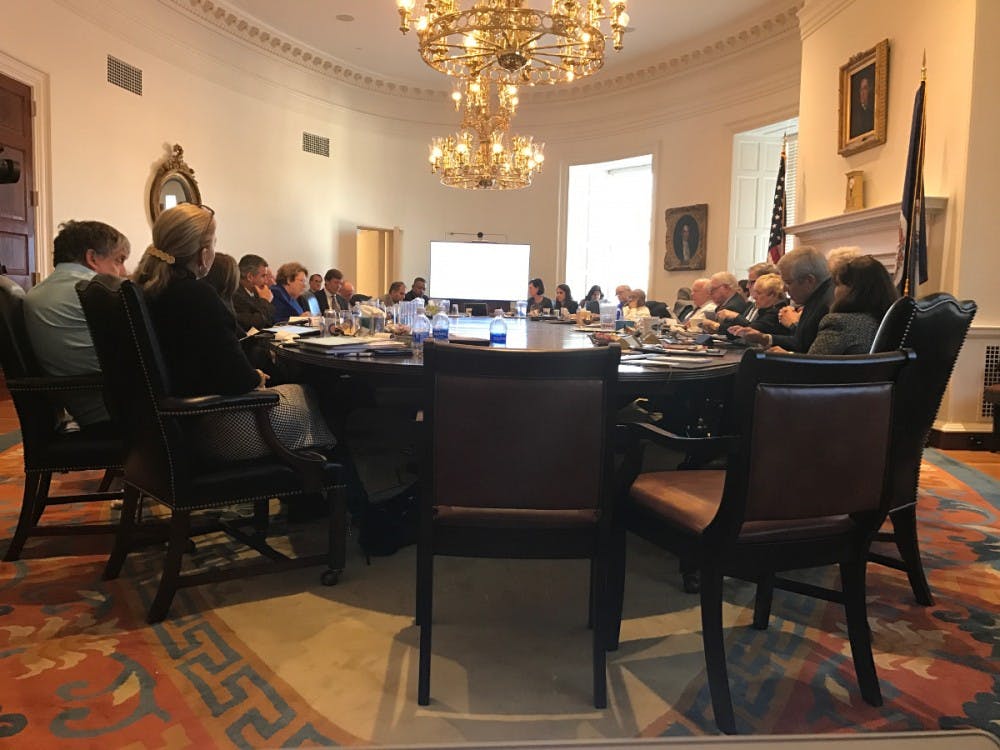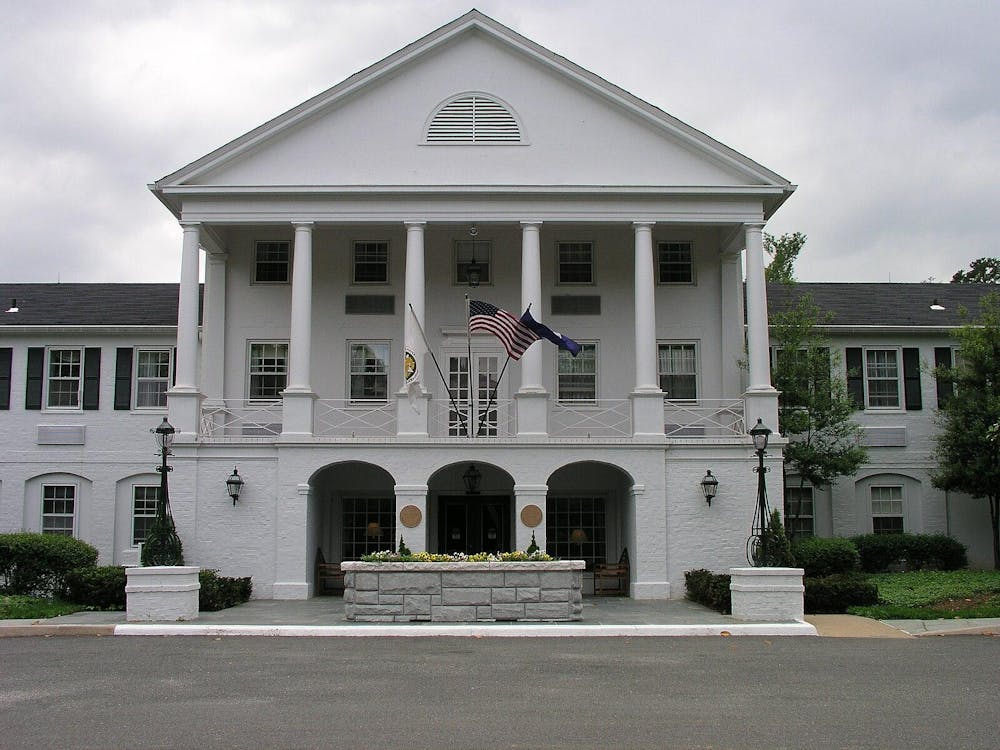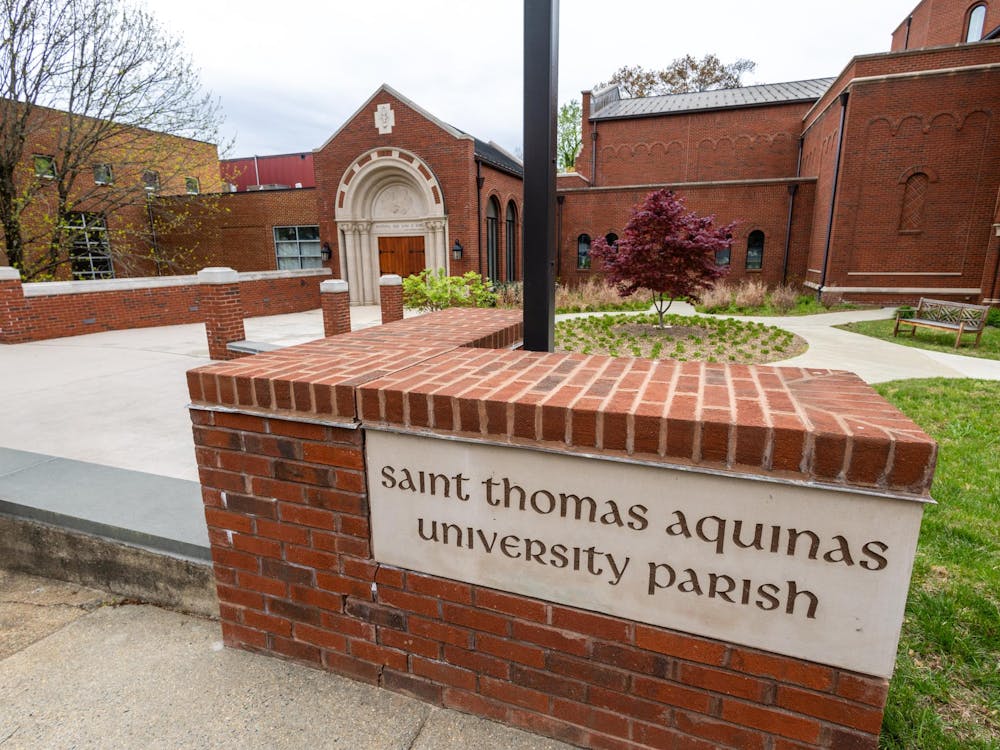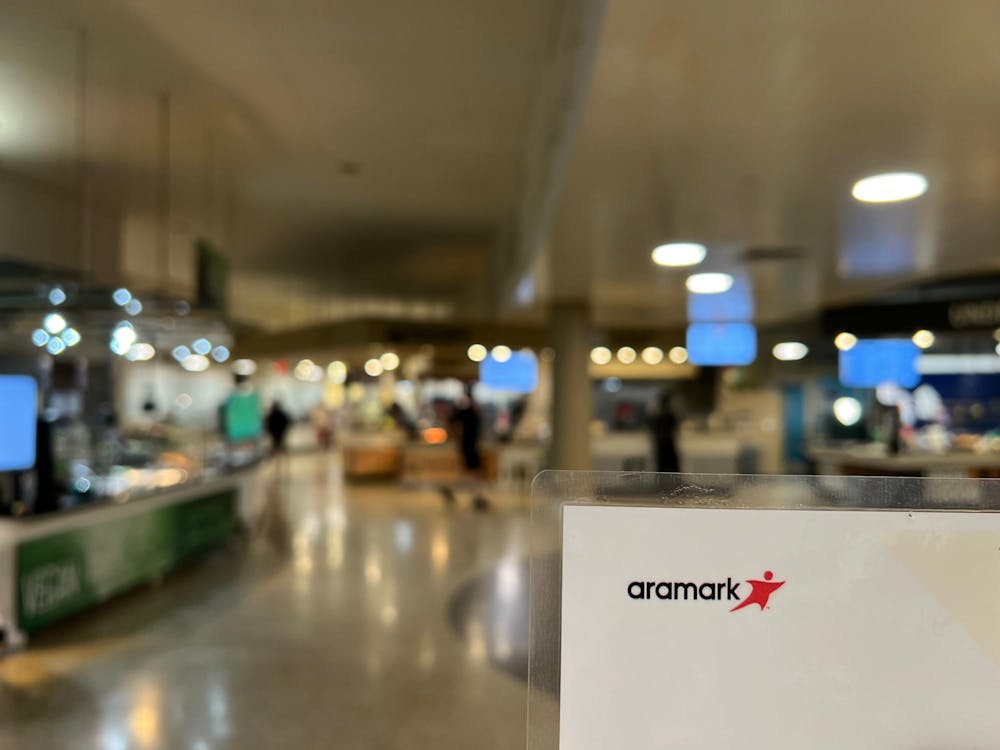The University’s Board of Visitors met in full at the Rotunda Friday afternoon and approved a resolution that would create an endowment with the potential to grow to $300 million in size over the next five years to support AccessUVA.
The meeting was dominated by debate over how to use funds in the University’s Strategic Investment Fund.
The meeting then turned to the proposal to establish the Bicentennial Scholars Fund, an endowment that would support the AccessUVA program. AccessUVA is a financial aid program that meets students needs through scholarships, grants, low-interest loans and work study.
Since its inception, however, AccessUVA has been funded out of the University budget. The board’s resolution allows for the money to come from donations instead of relying on tuition payments and other parts of the University’s operational budget.
Debate on the resolution centered on whether the Strategic Investment Fund was being used properly in funding AccessUVA through the endowment. The SIF has been generally associated with funding research. Some Board members felt that using the funds in other ways would distract from its other purposes.
Using the SIF this way “sets a bad precedent,” Board member L.D. Britt said. He said the SIF “should be to keep the academic edge, not for affordability.”
Proponents of using the SIF to fund the endowment said the benefits far outweigh the potential consequences. The donors will be funding students whose progress they can follow, according to those for the endowment.
The proposal is “something we can look back on as one of the great achievements of this board,” Board member John A. Griffin said. “It will be more than just throwing money into the financial aid bucket.”
The Board of Visitors approved the proposal to create the endowment in a 14-2 vote, with one member absent. Also approved was a system for fundraising that would match any immediate donations of more than $1 million with an equal amount from the SIF.
The fundraising tactic is meant to jumpstart the endowment with large donations. The SIF will match every $2 in donations with $1 on all donations of $100,000 or more. Donations of $1 million or more will be matched dollar for dollar. Projected donations to the endowment could be as much as $200 million over five years, with another $100 million from the SIF.
This tactic “will raise less money,” Griffin said, “but it will raise it faster and put it to use faster.”
Student Board member Phoebe Willis, a Law and Darden graduate student, gave her report to the BOV on student interaction with the administration. Willis outlined current initiatives being worked on by student leaders in the University, such as gender neutral housing and an initiative from the University Judiciary Committee to proactively fight honor violations.
Willis also presented the findings of a survey of students designed to gauge support for the board’s proposal to increase undergraduate enrollment. The survey showed that students polled were 77 percent opposed increasing enrollment, and students most commonly reported that they saw more money for the University as the main benefit of enrolling more students.
Willis said she thinks the University “needs to make it clear that increasing enrollment is not simply a money grab.”
Other proposals approved by the board from earlier sessions included a plaque at the Rotunda to memorialize Captain Humayun Khan, who was the only University alumnus killed in the Iraq War, renovations to Pinn hall and the establishment of seven new professorships.
The board also approved usage of nearly $29 million SIF funds to support research in the Engineering School, School of Medicine and College of Arts and Sciences. The project that received the most funding — nearly $17 million — was a program aimed at ending Type I diabetes.
Correction: This article previously misstated that the board approved the Bicentennial Scholars Fund by an 11-2 vote.







